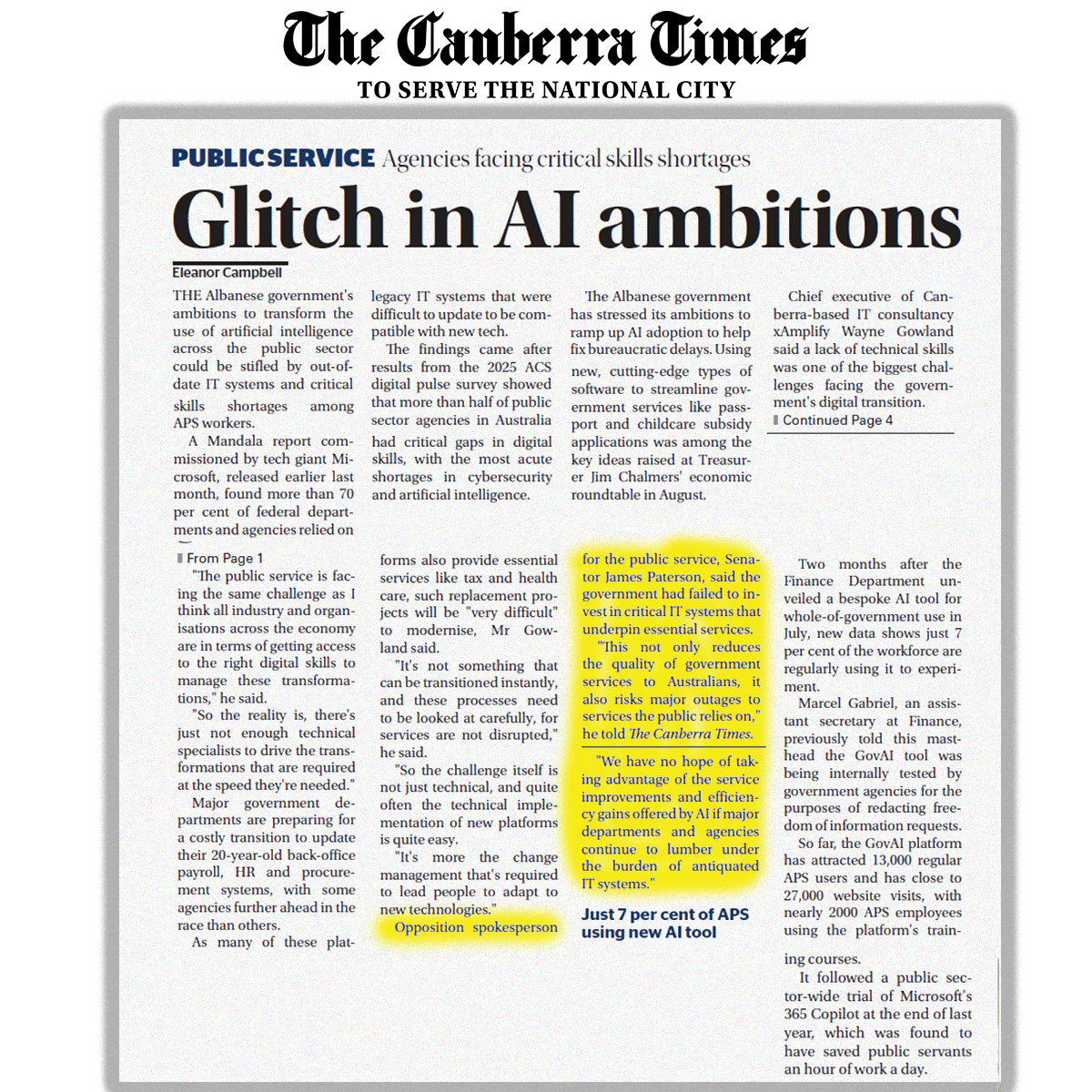Media
|
News
October 13, 2025

Monday 13 October
Eleanor Campbell
The Canberra Times
The Albanese government’s ambitions to transform the use of artificial intelligence across the public sector could be stifled by out-of-date IT systems and critical skills shortages among APS workers.
A Mandela report commissioned by tech giant Microsoft, released earlier last month, found more than 70 per cent of federal departments and agencies relied on legacy IT systems that were difficult to update to be compatible with new tech.
The findings came after results from the 2025 ACS digital pulse survey showed that more than half of public sector agencies in Australia had critical gaps in digital skills, with the most acute shortages in cybersecurity and artificial intelligence.
The Albanese government has stressed its ambitions to ramp up AI adoption to help fix bureaucratic delays. Using new, cutting-edge types of software to streamline government services like passport and childcare subsidy applications was among the key ideas raised at Treasurer Jim Chalmers’ economic roundtable in August.
Chief executive of Canberra-based IT consultancy xAmplify Wayne Gowland said a lack of technical skills was one of the biggest challenges facing the government’s digital transition.
“The public service is facing the same challenge as I think all industry and organisations across the economy are in terms of getting access to the right digital skills to manage these transformations,” he said.
“So the reality is, there’s just not enough technical specialists to drive the transformations that are required at the speed they’re needed.”
Major government departments are preparing for a costly transition to update their 20-year-old back-office payroll, HR and procurement systems, with some agencies further ahead in the race than others.
As many of these platforms also provide essential services like tax and healthcare, such replacement projects will be “very difficult” to modernise, Mr Gowerland said.
“It’s not something that can be transitioned instantly, and these processes need to be looked at carefully, for services are not disrupted,” he said.
“So the challenge itself is not just technical, and quite often the technical implementation of new platforms is quite easy.
“It’s ore the change management that’s required to lead people to adapt to new technologies.”
Opposition spokesperson for the public service, Senator James Paterson, said the government had failed to invest in critical IT systems that underpin essential services.
“This not only reduces the quality of government services to Australians, it also risks major outages to services the public relies on,” he told The Canberra Times.
“We have no hope of taking advantage of the service improvements and efficiency gains offered by AI if major departments and agencies continue to lumber under the burden of antiquated IT systems.”
Two months after the Finance Department unveiled a bespoke AI tool for whole-of-government use in July, new data shows just 7 per cent of the workforce are regularly using it to experiment.
Marcel Gabriel, an assistant secretary at Finance, previously told this masthead the GovAI tool was being internally tested by government agencies for the purposes of redacting freedom of information requests.
So far, the GovAI platform has attracted 13,000 regular APS users and has close to 27,000 website visits, with nearly 2000 APS employees using the platform’s training courses.
It followed a public-sector-wide trial of Microsoft’s 365 Copilot at the end of last year, which was found to have saved public servants an hour of work a day.